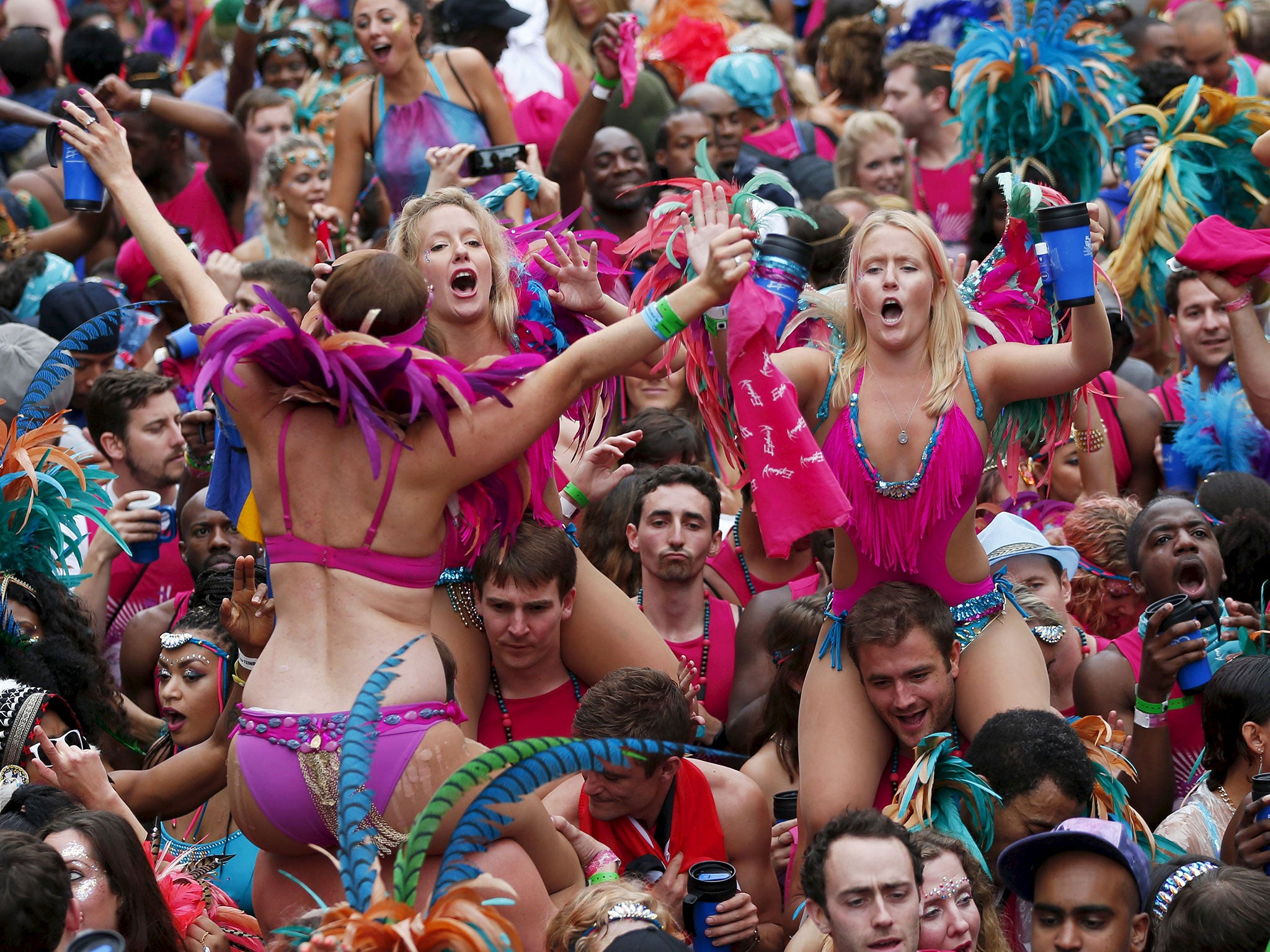Black culture is popular, but everyone should remember why Carnival started when partying this weekend
As Akala, one of the UK’s most successful hip-hop artists, put it: ‘Some people would like to enjoy African-Caribbean culture – just without African-Caribbean people’

Your support helps us to tell the story
From reproductive rights to climate change to Big Tech, The Independent is on the ground when the story is developing. Whether it's investigating the financials of Elon Musk's pro-Trump PAC or producing our latest documentary, 'The A Word', which shines a light on the American women fighting for reproductive rights, we know how important it is to parse out the facts from the messaging.
At such a critical moment in US history, we need reporters on the ground. Your donation allows us to keep sending journalists to speak to both sides of the story.
The Independent is trusted by Americans across the entire political spectrum. And unlike many other quality news outlets, we choose not to lock Americans out of our reporting and analysis with paywalls. We believe quality journalism should be available to everyone, paid for by those who can afford it.
Your support makes all the difference.Notting Hill Carnival is a prime example of the world’s love of black culture. Last year more than one million people turned out to celebrate, enjoy and respect black history and traditions. It was the brutal murder of Antiguan immigrant Kelso Cochrane in 1959 which spurred the creation of the West London street festival. However, many now seem to have forgotten the political and social tensions which created the carnival, and unfortunately that trend is set to increase.
This weekend marks the 50th anniversary of Notting Hill, the largest street carnival in Europe. But as it grows another decade older, this celebration of the lives of black people and immigrants in Britain has become progressively less representative, both politically and culturally, of those who first created it and those it was designed to serve.
Instead, the carnival now primarily appears to cater for white British revellers – despite 44 per cent of London being black and minority ethnic (BAME) people. Even when it comes to the cultural products of black struggle, why is it a whole race is still treated as inferior?
As Akala, one of the UK’s most successful hip-hop artists, put it: “Some people would like to enjoy African-Caribbean culture – just without African-Caribbean people.”
The deification among privileged people of Che Guevara, Malcolm X, Martin Luther King, Nelson Mandela, Muhammad Ali all represent the growing love of the anti-establishment, of freedom fighters and rebellious individuals with a cause. And there’s no civilisation which is more rebellious than that of black origin. Just ask Napoleon.

However, when it comes to dealing with the political, social, cultural and economic struggles which produced black culture, it gets a bit tricky. Those who have benefited from Western colonial history don’t like to deal with its social injustices; they just want to have fun.
Being frisked by the police, being imprisoned, receiving harsher sentences from the courts, and not securing top university places are all common experiences if you’re from a BAME background and, especially, if you’re black. It’s unfortunate, but true.
The latest statistics from the Ministry of Justice show a disproportionate number prisoners from black and mixed ethnic backgrounds in UK prisons. Currently, 10 per cent of the UK’s prison population is made up of black Britons despite making up only 3 per cent of the population according to the latest 2011 Census.
And in the year ending March 2015, BAME people were twice as likely to be stopped and searched compared with those who were white. While those who were black or black British were four times more likely than whites to be frisked. Fortunately, over the same time period stop and searches of those of black origin have decreased by 70 per cent. But it’s not enough.
Black culture is hugely popular in the UK, but its popularity has not translated into action on the biggest issues facing BAME people. So by all means go to the Notting Hill Carnival this weekend and celebrate the best in black and African-Caribbean music and food – but don’t forget the important reason it was established in the first place.
Join our commenting forum
Join thought-provoking conversations, follow other Independent readers and see their replies
Comments